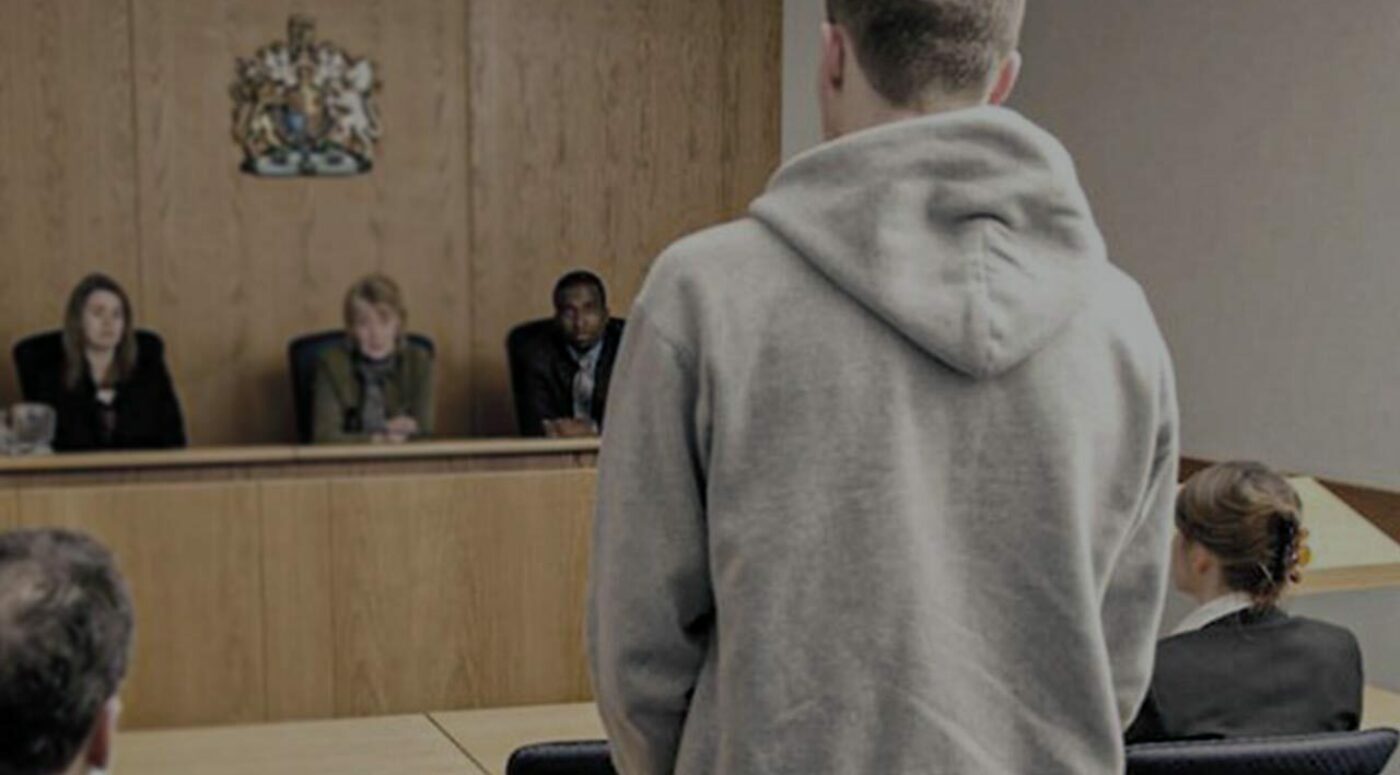

If you’ve been convicted of a crime and want to appeal the decision, you’re not alone. It is probably the first thing that most convicts think about when they hear their sentence, and so it is no surprise that so many people ultimately do. Thousands of people in the UK each year choose to challenge their conviction in court. There are several grounds on which you can appeal a conviction, and this guide will walk you through your options and what the high-level process looks like. Keep in mind that appealing a criminal conviction can be complicated, and there’s a chance your case might be handled differently depending on your specific circumstances, so it’s best to get personalised legal help from an experienced criminal appeals solicitor.
Can a conviction be overturned in the UK?
Let’s start with the good news: yes, a criminal conviction can be overturned through the appellate process in the UK. This means that if there was a legal error or some other improper handling of your criminal case, you have a chance to rectify the wrong and wipe the slate clean.
However, it is very important to remember that appealing a criminal conviction is an uphill battle and – given how extensive the criminal prosecution process is – it’s unlikely for an appeal to succeed without proper grounds for appealing and strong supporting evidence.
The process for appealing, and indeed what you can actually appeal, varies depending on the court.
- In the Magistrates’ Court, you can appeal against your sentence, if you pleaded guilty, or your conviction and sentence, if you pleaded not guilty.
- In the Crown Court, you can appeal against your conviction, sentence, or both regardless of whether you pleaded guilty or not guilty.
What are the grounds for appealing a conviction?
There are several grounds on which you can appeal a criminal conviction in the UK. These do depend on the court, the way your case was handled, and the crime for which you have been convicted, but generally the grounds include:
- there being an error when the judge gave out the verdict or sentence
- new evidence coming to light that was not available at the time of the original trial or conviction
- discovery of a technical issue in how the case was handled
- evidence of prosecutorial misconduct, such as leading witnesses, misleading the court, or bullying jurors
- circumstances that prevented the accused from receiving a fair trial
Can I appeal a conviction if I just don’t like the outcome?
Strictly speaking, you can. If you are tried in the Magistrates’ Court and don’t agree with the outcome – but are not alleging any formal or legal wrongdoing or mishandling of the case – then you can appeal to the Crown Court.
What if I didn’t know about my case happening?
If a case proceeds against you in the Magistrates’ Court and you didn’t know about it, you can make a statutory declaration to a Magistrates’ Court. If successful, this will result in your case being reopened.
What is the process for appealing a conviction?
The process for appealing against a criminal conviction in the UK depends on whether you are appealing against a decision of the Magistrates’ Court or the Crown Court.
Magistrates’ Court
Appeals at the Magistrates’ Court sometimes just consist of asking the same court to reconsider its decision. This is not as complex as appealing to a higher court. If you are unhappy with the Magistrates’ decision, you can:
- ask the court to reconsider its decision if you think there was a mistake or wrongdoing in how your case was handled
- appeal up to the Crown Court if you do not allege mistake or wrongdoing, but still don’t like the outcome of the case
- ask for your case to be reopened if you weren’t aware of it happening and didn’t get a chance to defend yourself
- request that the fine amount be changed if you think it was unfair
Different time limits and procedures apply to each type of appeal request in the Magistrates’ Court.
Crown Court
To appeal a decision of the Crown Court, you first need to apply for permission to appeal. This is where you submit written evidence to the court that outlines your grounds for appealing, usually after guidance from a solicitor. You must apply within 28 days of your conviction or sentence, whichever you are appealing.
A judge will then consider your application and decide whether it should proceed to a full hearing. If the judge decides that there are grounds to proceed with a hearing, the case will be heard by the Court of Appeal Criminal Division. After the hearing is concluded, the judges will make a decision on whether to allow your appeal.
What happens if permission to appeal is refused?
In the Magistrates’ Court, you can appeal to the Crown Court if you are denied a review.
In the Crown Court, if the judge does not allow your appeal, you will be sent a letter explaining why. You will also have the right to renew your application and ask a ‘full court’ (consisting of two or three judges) to give you permission to appeal. If those judges still decide not to allow your appeal, you have come to the end of the road and cannot change the outcome (unless new evidence comes to light later).
Can you appeal after pleading guilty?
Yes. Even if you pleaded guilty in court, you still have the right to appeal your conviction or sentence.
What happens if an appeal is denied?
If the judges do not allow your appeal after the full hearing, your original sentence or conviction will still stand. You may also have to restart your sentence from the beginning and pay the court costs.
If you still think there was a mistake, you can ask the Criminal Cases Review Commission (CCRC) to review your case.
Who has the right to appeal?
In the UK, anyone convicted in the Magistrates’ or the Crown Court has the right to appeal. You must appeal through the formal appeals process – you cannot approach a judge or the prosecutor individually to protest the decision.
What costs must be paid for appealing?
Generally speaking, you will face representation fees as well as court fees for lodging an appeal.
Any concerns over costs associated with appealing your conviction or sentence should be taken up with your solicitor. They may be able to advise on how to lower fees, or how to secure assistance. For example, you may be eligible for legal aid if you cannot afford to pay for appropriate representation.
What are the chances of successfully appealing a criminal conviction?
Typically, less than 10% of appeals are successful. Statistics vary depending on the court, the offence, and the year, but as a rule of thumb, only 1 in 10 cases will succeed on appeal.
It is difficult to say for sure, however, as every case will differ. The success rate depends on many factors, such as your grounds for appealing and the strength of your legal team. The most important thing to remember is that you have a right to appeal if you don’t agree with the outcome of your case.
What happens when a conviction is quashed?
If your appeal is successful and your conviction is quashed, it means that the conviction and sentence are overturned. This means that you will no longer be deemed guilty of a crime, and any restrictions imposed after your conviction will also be removed. You will be ‘free to go’.
If only your sentence is appealed successfully, you may still have some time to serve. Your conviction will also not go away, which means it will be on the Police National Computer records and may show up in a Disclosure and Barring Service (DBS) check, depending on the nature of the offence.
Can you get a worse sentence on appeal?
Generally speaking, you will not get a worse sentence on appeal. It is not impossible for that to happen, though (especially if the appeal judge agrees that your case was not handled correctly and you were, actually, treated too leniently) so you should definitely not appeal your sentence just because there’s a chance ‘nothing could get worse’.
Can a victim appeal against a sentence?
Victims cannot directly appeal someone else’s conviction in the UK, as this right only applies to convicted individuals. Victims do, however, have a role to play in proceedings to ensure their voices and preferences are heard in sentencing.
What is an unsafe conviction?
An unsafe conviction is one which has been deemed ‘not safe’ because of procedural errors, incorrect evidence, or lack of representation. In these cases, an appeal may be successful, and the conviction reversed.
Where to get more help with appealing a conviction?
Hopefully this guide has given you a clearer idea of how to go about appealing against a criminal conviction in the UK. Remember that appealing can be a complex and time-consuming process, so it’s important for you to seek legal advice from a reputable firm like Stuart Miller Solicitors. Contact us today for a friendly and open chat about your prospects of appeal.
OUR COMMITMENTS TO YOU:
-
Responsive
A legal expert will consult you within 24 hours of making an enquiry.
-
Empathetic
We will always treat you with trust, understanding and respect.
-
Specialised
Your case will be handled by an expert who specialises in your type of offence.
-
Proactive
We will take early action to end proceedings as soon as it is practically and legally possible to do so.
-
Engaged
You will be kept updated on your case at all times. We will provide a named contact available to answer your questions.
-
Caring
We understand this is a difficult and stressful time for you and your family. Our team will support you every step of the way.
-
Tenacious
We will never give up on your case. We fight tirelessly to get you the best possible outcome.

